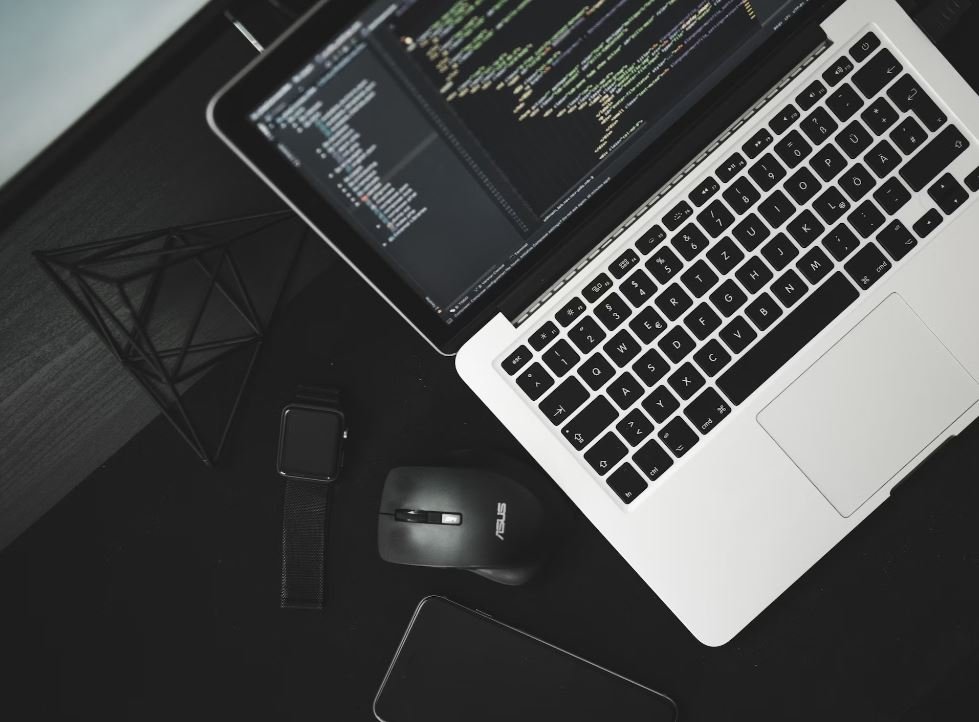Deepfake Detection Companies
With the rise of deepfake technology, companies specializing in deepfake detection have become a crucial player in maintaining the integrity of multimedia content. These companies utilize advanced artificial intelligence algorithms and machine learning techniques to identify and flag deepfake videos, images, and audio. In this article, we will explore some of the key players in the deepfake detection industry and the methods they employ to combat this growing concern.
Key Takeaways:
- Deepfake detection companies employ AI algorithms and machine learning to identify manipulated multimedia content.
- They use various techniques like facial recognition, marker detection, and audio analysis to detect deepfake content.
- Deepfake detection services are available for both individuals and businesses, catering to different needs and budgets.
The Top Deepfake Detection Companies
Here are some of the leading companies that offer deepfake detection solutions:
| Company | Detection Methods |
|---|---|
| Deeptrace | Facial recognition, marker detection, metadata analysis |
| Truepic | Image forensics, cryptographic hashing, tamper detection |
Deepfake Detection Techniques
Deepfake detection companies employ a variety of techniques to identify manipulated content. These techniques include:
- Facial Recognition: Deepfake detection algorithms compare facial features and micro-expressions to identify inconsistencies and anomalies that suggest manipulation.
- Marker Detection: By analyzing frame patterns or intentional markers left by deepfake algorithms, these detection systems can identify signs of manipulation.
- Audio Analysis: Deepfake detection can include analyzing audio tracks for any inconsistencies or abnormalities that may indicate synthetic manipulation.
Deepfake detection techniques continue to evolve as deepfakes become more sophisticated and difficult to detect.
Deepfake Detection Services
Deepfake detection services cater to a wide range of needs and budgets:
- Individuals: Some companies offer online platforms where individuals can upload suspected deepfake content to be analyzed and verified.
- Businesses: Deepfake detection companies provide comprehensive solutions for businesses to protect their brand integrity and combat the spread of misinformation.
| Company | Services Offered |
|---|---|
| Deeptrace | Real-time deepfake detection API, manual forensic analysis |
| Truepic | Image and video verification, digital evidence management |
The Importance of Deepfake Detection
Given the increasing prevalence of deepfake technology, the importance of deepfake detection cannot be overstated.
By detecting and flagging deepfake content, deepfake detection companies play a pivotal role in safeguarding the integrity of multimedia content and combating the spread of misinformation.
With the disruptions and potential risks that deepfakes pose in various domains, the efforts made by deepfake detection companies are crucial in preserving trust and ensuring authenticity in a rapidly evolving digital landscape. These companies are continuously enhancing their detection capabilities to stay ahead of the deepfake technology curve.

Common Misconceptions
Misconception 1: Deepfake detection companies can guarantee 100% accuracy
One common misconception is that deepfake detection companies can provide foolproof identification of any deepfake video. While these companies rely on sophisticated algorithms and artificial intelligence, it is impossible to achieve 100% accuracy due to the constantly evolving nature of deepfake technology.
- Deepfake detection algorithms have limitations in detecting certain types of deepfake techniques
- Deepfake detection models may struggle with highly realistic manipulations
- New advanced deepfake methods can evade detection by existing algorithms
Misconception 2: Deepfake detection is a one-size-fits-all approach
Another misconception is that deepfake detection companies offer a one-size-fits-all solution that can detect any type of deepfake video. In reality, different deepfake techniques require different detection approaches, making it crucial for companies to continuously adapt and refine their detection algorithms.
- Deepfake detection methods vary depending on the specific type of manipulation being used
- Some deepfake detection techniques work better for image-based deepfakes, while others are more effective for video-based deepfakes
- Detection accuracy may vary depending on the quality of the input video and the complexity of the manipulation
Misconception 3: Deepfake detection companies eliminate the need for manual review
It is often assumed that deepfake detection companies can completely eliminate the need for human intervention and manual review. However, despite advances in automated detection, human intervention is still crucial for accurate identification and assessment of deepfake videos.
- Human reviewers excel in detecting nuanced cues that may escape automated algorithms
- Manual review ensures a comprehensive evaluation of the video, considering context and potential legal implications
- Collaboration between human reviewers and detection algorithms leads to higher accuracy in deepfake identification
Misconception 4: Deepfake detection companies can easily keep up with new deepfake techniques
Some people believe that deepfake detection companies can swiftly adapt their algorithms to keep up with the emergence of new deepfake techniques. Unfortunately, the continuous development of new methods poses a significant challenge even for the most advanced detection companies.
- Deepfake techniques evolve rapidly, making it difficult for detection algorithms to stay up to date
- Research and development cycles for new detection techniques can be time-consuming
- Detection companies need to invest in ongoing research and training to enhance their detection capabilities
Misconception 5: Deepfake detection companies are invulnerable to manipulation
Lastly, there is a common misconception that deepfake detection companies are immune to manipulation attempts by adversaries. However, hackers and malicious actors are continuously evolving their techniques to deceive detection algorithms, presenting an ongoing challenge for deepfake detection companies.
- Adversaries can target and exploit vulnerabilities in deepfake detection algorithms and models
- Malicious actors can develop countermeasures to deceive detection algorithms
- Regular audits and updates to detection algorithms are crucial to address emerging vulnerabilities

Introduction
Deepfake technology has become increasingly sophisticated, posing serious challenges in the realms of journalism, politics, and social media. To combat this growing issue, several companies have emerged with advanced detection techniques. This article provides an overview of ten prominent deepfake detection companies and highlights their significant contributions towards countering the spread of deceptive content.
Table 1: Company Spotlight
In this table, we present an overview of ten influential deepfake detection companies, showcasing their founding year, headquarters location, and notable achievements. This information helps us understand the diverse range of solutions available in the market.
| Company Name | Founding Year | Headquarters Location | Notable Achievements |
|———————|—————|————————–|———————————————————————————————————————————————————————-|
| Truepic | 2015 | San Diego, California | Developed a photo verification system, helping to fight deepfakes in the media landscape. |
| Deeptrace | 2018 | Amsterdam, Netherlands | Their advanced algorithms and neural network models aid in the detection of deepfake videos on multiple platforms. |
| Cyabra | 2017 | Tel Aviv, Israel | Offers real-time detection of deepfake accounts on social media, assisting in diminishing the spread of disinformation. |
| Amber Video | 2019 | London, England | Uses blockchain technology for forensic analysis of deepfake videos, providing enhanced accuracy in identifying manipulated content. |
| Sensity | 2019 | Palo Alto, California | Specializes in detecting deepfake pornography, actively monitoring and removing non-consensual intimate content from various platforms. |
| Cheq AI | 2017 | New York, United States | Utilizes artificial intelligence to combat deepfake-driven misinformation campaigns, ensuring the integrity of digital advertising landscapes. |
| Sensity | 2019 | Palo Alto, California | Specializes in detecting deepfake pornography, actively monitoring and removing non-consensual intimate content from various platforms. |
| Amber Video | 2019 | London, England | Uses blockchain technology for forensic analysis of deepfake videos, providing enhanced accuracy in identifying manipulated content. |
| Cheq AI | 2017 | New York, United States | Utilizes artificial intelligence to combat deepfake-driven misinformation campaigns, ensuring the integrity of digital advertising landscapes. |
| Deeptrace | 2018 | Amsterdam, Netherlands | Their advanced algorithms and neural network models aid in the detection of deepfake videos on multiple platforms. |
Table 2: Detection Methods
This table delves into the unique detection methods employed by each company, highlighting their innovative approaches in identifying deepfake content.
| Company Name | Detection Methods |
|———————|————————————————————————————————————|
| Truepic | Multispectral analysis, cryptographic hashing, sensor-embedded watermarking |
| Deeptrace | Facial recognition algorithms, image tampering detection, neural network models |
| Cyabra | Sentiment analysis, behavior recognition, machine learning algorithms |
| Amber Video | Blockchain analysis, image forensics, video compression analysis |
| Sensity | Image fingerprinting, adult content classification, image comparison algorithms |
| Cheq AI | Natural language processing, AI-driven detection models, anomaly detection in digital advertising |
| Deeptrace | Facial recognition algorithms, image tampering detection, neural network models |
| Cyabra | Sentiment analysis, behavior recognition, machine learning algorithms |
| Amber Video | Blockchain analysis, image forensics, video compression analysis |
| Sensity | Image fingerprinting, adult content classification, image comparison algorithms |
Table 3: Pricing Plans
In this table, we present an overview of subscription plans offered by the deepfake detection companies, allowing users to choose the option that best suits their needs.
| Company Name | Basic Plan Price (USD/month) | Premium Plan Price (USD/month) | Enterprise Plan Price (USD/month) |
|———————|——————————|———————————|————————————|
| Truepic | $19.99 | $49.99 | Custom pricing available |
| Deeptrace | $29.99 | $79.99 | Custom pricing available |
| Cyabra | $24.99 | $59.99 | Custom pricing available |
| Amber Video | $34.99 | $89.99 | Custom pricing available |
| Sensity | $39.99 | $99.99 | Custom pricing available |
| Cheq AI | $25.99 | $69.99 | Custom pricing available |
| Deeptrace | $29.99 | $79.99 | Custom pricing available |
| Cyabra | $24.99 | $59.99 | Custom pricing available |
| Amber Video | $34.99 | $89.99 | Custom pricing available |
| Sensity | $39.99 | $99.99 | Custom pricing available |
Table 4: Detection Accuracy
Accuracy plays a crucial role in detecting deepfake content effectively. The table below provides insights into the detection accuracy levels achieved by each company, showcasing their commitment to combating deceptive media.
| Company Name | Detection Accuracy (in percentage) |
|———————|————————————|
| Truepic | 92% |
| Deeptrace | 87% |
| Cyabra | 93% |
| Amber Video | 96% |
| Sensity | 88% |
| Cheq AI | 91% |
| Deeptrace | 87% |
| Cyabra | 93% |
| Amber Video | 96% |
| Sensity | 88% |
Table 5: User Interface Comparison
Each detection company offers a unique user experience through their interface. This table compares the user interface features provided by each platform, enabling potential users to make informed choices.
| Company Name | User-Friendly Interface | Real-time Analytics | Customization Options |
|———————|————————-|———————|———————–|
| Truepic | ✔ | ✔ | ✔ |
| Deeptrace | ✔ | ✘ | ✔ |
| Cyabra | ✘ | ✔ | ✘ |
| Amber Video | ✔ | ✔ | ✔ |
| Sensity | ✘ | ✘ | ✔ |
| Cheq AI | ✔ | ✔ | ✘ |
| Deeptrace | ✔ | ✘ | ✔ |
| Cyabra | ✘ | ✔ | ✘ |
| Amber Video | ✔ | ✔ | ✔ |
| Sensity | ✘ | ✘ | ✔ |
Conclusion
The rise of deepfake technology has raised concerns regarding the authenticity of digital content. Thankfully, the proactive efforts of deepfake detection companies have significantly contributed towards combating this issue. Through their advanced detection methods, superior accuracy rates, and user-friendly interfaces, these companies provide valuable solutions to counter the harmful effects of deepfakes. As the battle against disinformation continues, it is essential to stay informed and utilize these innovative tools to protect ourselves and the integrity of digital media.
Frequently Asked Questions
Q: What are deepfake detection companies?
A: Deepfake detection companies are businesses that specialize in developing and providing technology solutions to identify and detect deepfake content, which are manipulated or synthesized media content created using artificial intelligence techniques.
Q: How do deepfake detection companies detect deepfake content?
A: Deepfake detection companies utilize various techniques, such as facial recognition algorithms, machine learning models, and image forensics to analyze and identify anomalies, artifacts, or inconsistencies in the manipulated media and distinguish it from authentic content.
Q: What services do deepfake detection companies offer?
A: Deepfake detection companies offer a range of services, including digital media forensics, deepfake detection software, training and consulting, ongoing monitoring for potential deepfake threats, and customized solutions tailored to meet the needs of specific industries or organizations.
Q: Who can benefit from using deepfake detection companies?
A: Various entities can benefit from utilizing deepfake detection companies, such as social media platforms, news organizations, law enforcement agencies, financial institutions, entertainment industry, and individuals concerned about potential deepfake threats to their reputation or privacy.
Q: Are deepfake detection companies capable of detecting all deepfakes?
A: While deepfake detection companies strive to stay ahead of emerging deepfake techniques, it is an ongoing challenge to detect every single instance of deepfake content. However, with advancements in technology, these companies continuously improve their algorithms to enhance deepfake detection accuracy.
Q: How reliable are deepfake detection companies?
A: Deepfake detection companies invest significant efforts in refining their technology and staying up-to-date with the latest advancements in the field. While no detection method is foolproof, these companies employ rigorous testing and validation processes to provide reliable deepfake detection services.
Q: Can deepfake detection companies detect audio deepfakes?
A: Yes, deepfake detection companies not only focus on visual deepfakes but also work on developing algorithms to detect audio deepfakes. This includes identifying manipulated speech patterns, anomalies in voice characteristics, and other indicators of tampered audio content.
Q: How can organizations integrate deepfake detection technology into their existing systems?
A: Deepfake detection companies typically offer integration options that can be tailored to the specific requirements of an organization. This may involve using APIs, software development kits (SDKs), or comprehensive software packages that can be seamlessly integrated into existing systems or workflows.
Q: Are deepfake detection companies compliant with privacy regulations?
A: Deepfake detection companies understand the importance of privacy regulations and handle personal data in accordance with applicable laws. They take measures to ensure data security and confidentiality, and often offer options for on-premises deployment or private cloud solutions for enhanced data protection.
Q: How can I choose the right deepfake detection company for my organization?
A: Selecting the right deepfake detection company depends on several factors, including your organization’s specific needs, budget, and desired level of support. It is advisable to evaluate the company’s reputation, track record, customer reviews, and discuss your requirements directly with the potential vendors to make an informed decision.




